What do you know about Liechtenstein?
When I was younger I was always fascinated by the obscure. Which language did I want to learn? Polish, of course. Which musical instrument did I want to learn? The cello, naturally. Which country did I want to visit? Liechtenstein, obviously. The more I think about it, the more I wonder if I wasn’t so much fascinated by the obscure as I was drawn towards Central and Eastern Europe.
But no, it was definitely an obscure thing – when I took my first trip abroad in 2004 it was to Iran, and when I decided to move abroad for work (and eventually settle), it was Lahore via Chennai.
I was reminded of my (long lost) wish to visit Liechtenstein recently when I actually went to the minuscule country. After posting a couple of pictures on Facebook, my dutiful mother commented accordingly;
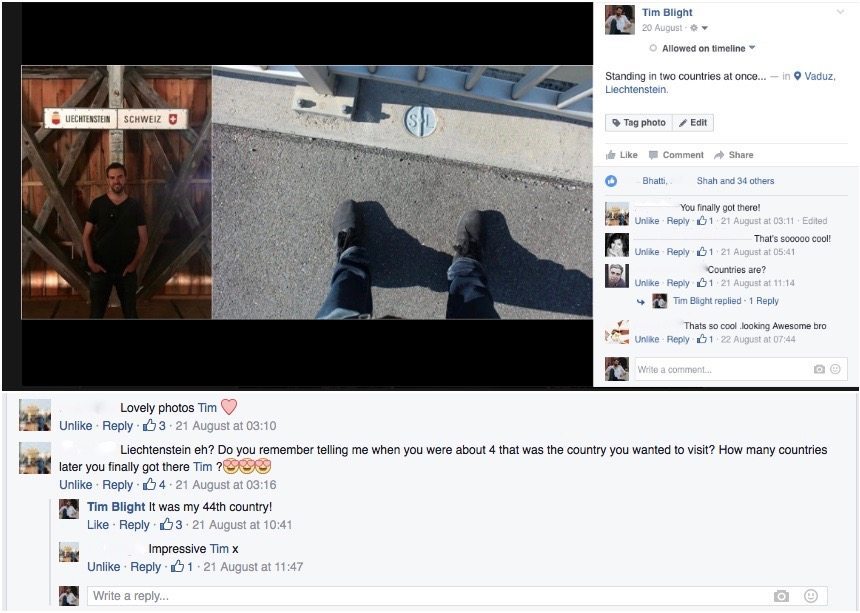
It’s easy to laugh about a country which measures just 25 kilometres long. But as my studies will attest, Liechtenstein is very seriously an independent country – there’s just a lot that people don’t know about it.
For example, its capital Vaduz is actually a decent-sized city considering Liechtenstein’s microstate status. While numbering only 5,500, its population is spread across a couple of suburbs (unlike blink-and-you’ll-miss-it Vatican City), and the city’s main street actually feels like a main street (unlike Andorra-la-Vella’s deserted duty-free weirdness).
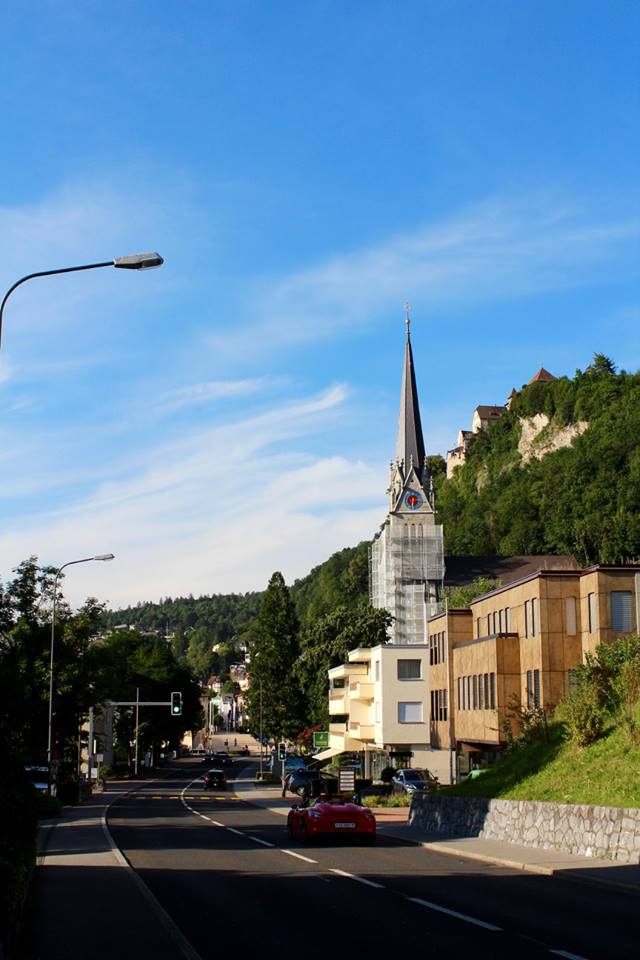
Vaduz, Liechtenstein
There’s even a McDonalds in Vaduz (a business extension of McDonalds’ Switzerland operations), and the whole capital city is watched over by the princes castle on the hill. Yes, Liechtenstein is ruled by a prince, and although there’s an elected government, Prince Hans-Adam II wields ultimate power. Every year on 15th August, the prince celebrates Lichtenstein’s national holiday by inviting the whole country to his castle for a party with free beer and fireworks. And a fair proportion of the 37,000-strong population turn up, apparently.
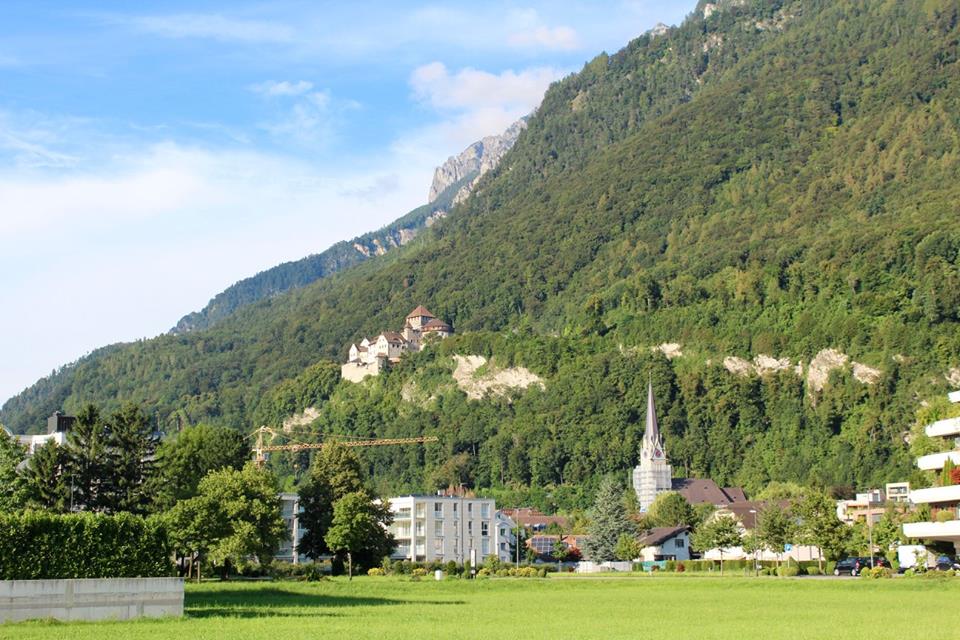
The prince’s castle above Vaduz, Liechtenstein
Liechtenstein is not part of the EU. That’s right – sandwiched in between Switzerland and Austria, hemmed in by the Alps, Liechtenstein takes part in a whole bunch of trade and visa agreements, but is independent of the European Union. But it’s not all independence and heads held high – Liechtenstein doesn’t have its own currency, instead using the Swiss Franc. Liechtenstein is also one of a handful of countries without an airport, meaning any air travel is done via Zurich in Switzerland, about 80 kilometres away. I didn’t actually stay in Liechtenstein – instead opting for the bizarrely staffless B Smart Hotel at Sevelen in Switzerland – about a thirty minute walk away.
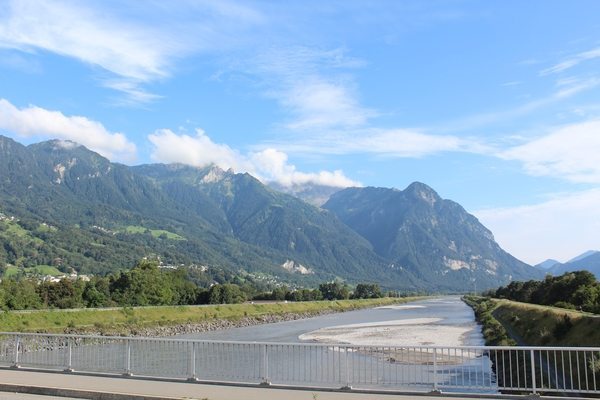
Looking at Liechtenstein from across the River Rhine
Like any microstate, Lichtenstein has its fair share of weirdness too. It offers passport stamps – not because anyone needs them, but for the novelty factor. It’s a tax haven (or, as the Liechtenstein government likes to call it, a “safe haven”), with scores of companies using the places as a base for their operations. It’s one of two countries in the world which are “double-landlocked”, meaning that it is situated between two or more other landlocked countries. The other one is Uzbekistan. And its biggest export? Dentures. Of course.
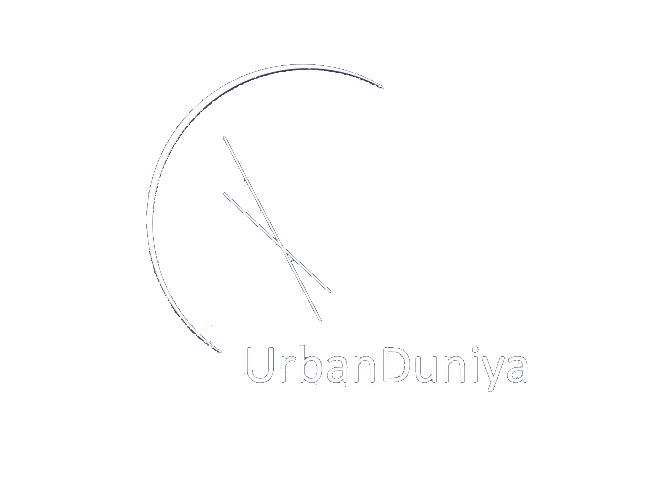
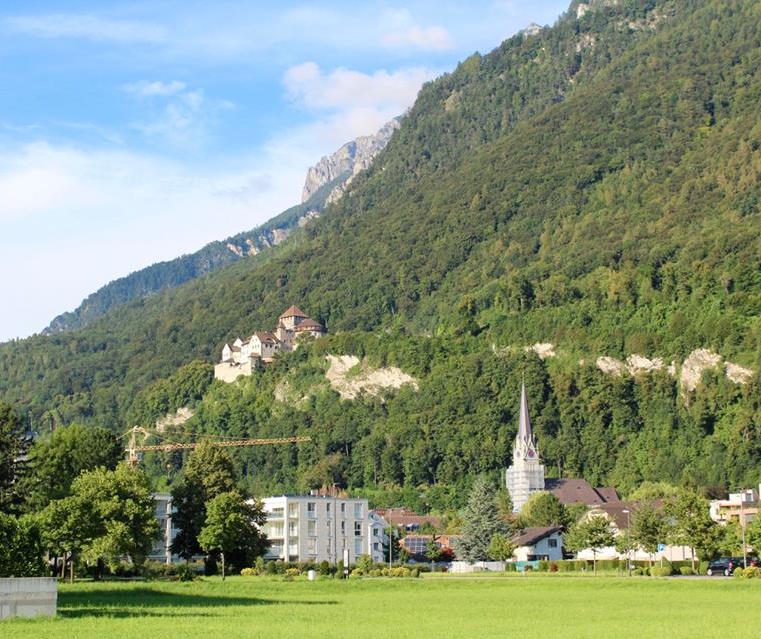
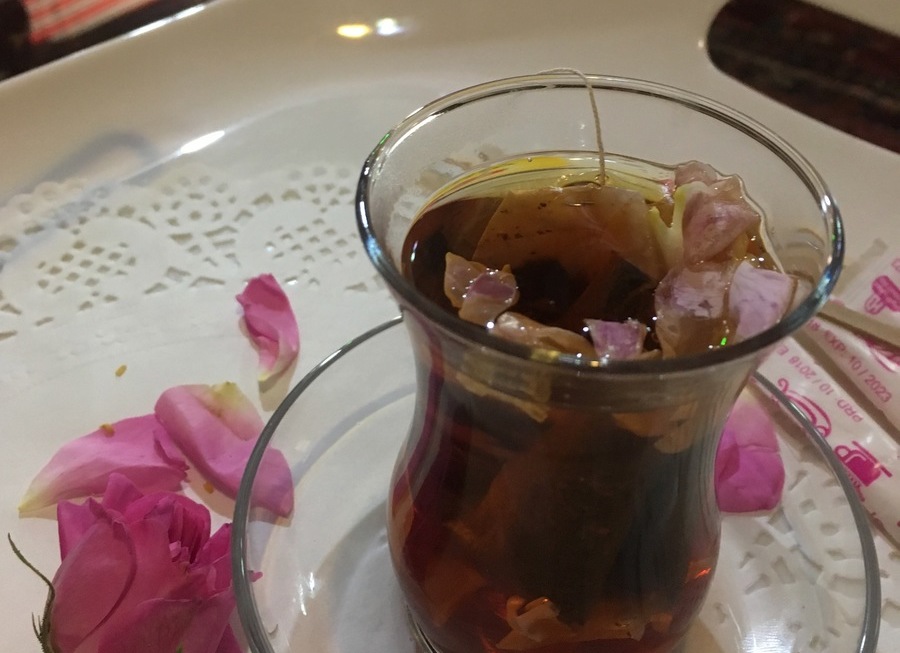


Interesting to hear about Leichenstein. Why dentures? Cello? I thought it was Tuba. Also the sport you wished to learn/play was golf and the funniest if all… Favourite colour- stripes!! Proud of you Tim love your dutiful mother ❤️
Thanks mum xx
well. There you go! not much more to say! actually looks very pretty
It was lovely! I’d happily go back… although I don’t know what I would do there. Buy some dentures, perhaps?